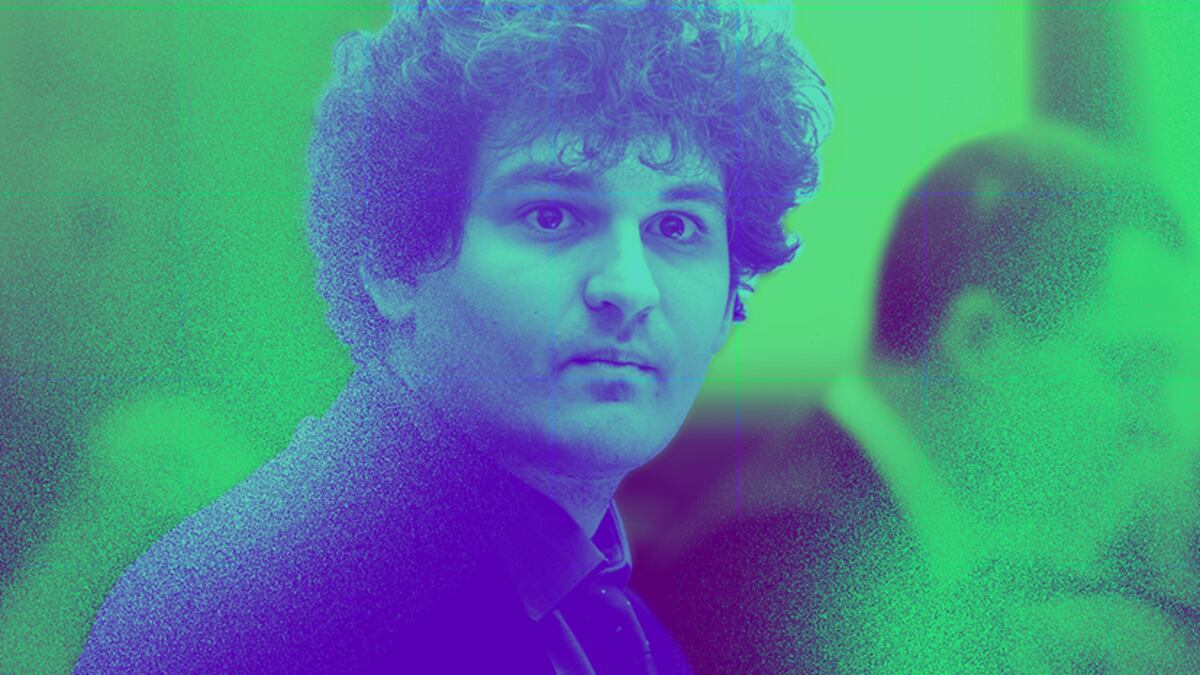- Sam Bankman-Fried testified in his own trial Thursday.
- Calm and articulate under direct examination, he became evasive under the prosecution’s aggressive questioning.
- But the jury wasn’t in the room, since Judge Lewis Kaplan said he needed to hear part of Bankman-Fried’s testimony before allowing jurors to hear it. Judge Kaplan will decide Friday what topics Bankman-Fried will be allowed to testify on.
For a moment, Sam Bankman-Fried testifying in his own trial seemed like a good idea, as he calmly explained how FTX attorneys had greenlit much of his allegedly criminal or questionable behaviour there.
Then, under relentless questioning from Assistant US Attorney Danielle Sassoon, Bankman-Fried was reminded why defendants rarely testify in their own trials.
Bankman-Fried took the stand Thursday afternoon, marking the most anticipated moment in his trial to date. Dozens of people, most of them reporters, had gathered outside the courthouse before it opened just before 8 am. Pews in the courtroom, most of them empty over the past week-and-a-half, were packed, and extra chairs were brought into the room and placed against the walls.
Bankman-Fried, 31, has pleaded not guilty to the seven charges of fraud and related crimes against him.
It’s rare for criminal defendants to take the stand because prosecutors can expose discrepancies in their past statements and solicit damaging admissions.
Bankman-Fried is hoping to persuade the 12-member jury to reject the testimony of his former colleagues and roommates, which painted him as a manipulative mogul who orchestrated widespread fraud at FTX and Alameda Research, a crypto trading firm he controlled.
Bankman-Fried’s testimony lasted almost three hours. Although it was high in drama, it may be of little consequence: the jury wasn’t in the room.
That’s because Judge Lewis Kaplan decided on Thursday he needed to hear part of Bankman-Fried’s planned testimony before deciding whether it was relevant to his defence, or whether it would simply confuse jurors. If he decided on the latter, Bankman-Fried would not be allowed to testify on those specific topics.
Under questioning from his attorney, Mark Cohen, Bankman-Fried said much of the behaviour that prosecutors had cast as criminal or indicative of criminal intent were blessed by his attorneys at FTX, including the use of an auto-delete feature in an encrypted messaging app; his alleged use of subsidiaries and intracompany loans to launder money; and FTX’s terms of service, which gave sister company Alameda permission to “borrow” FTX customers’ funds.
“Unchallenged, that came through, I thought, pretty well,” crypto attorney Moish Peltz, a crypto attorney at Falcon, Rappaport, and Berkman, who sat in on the trial, told DL News. “[Bankman-Fried] seemed prepared, assertive, confident.”
As if to emphasise that point, Bankman-Fried’s father, Joe Bankman, walked up to his son and gave him a thumbs up during a break after the direct examination.
The cross-examination
All that changed when he was cross-examined by Sassoon, however.
While Bankman-Fried spoke in generalities when questioned by his own attorney, Sassoon attempted to elicit more specific answers, asking him to recall seeking attorneys’ approval of particular company documents, and clauses within FTX’s terms of service.
Bankman-Fried often could not, however, apologising to Sassoon several times for not being able to provide more specific answers. And yes-or-no questions almost universally elicited long, discursive answers.
“Once cross examination began, he became very defensive [and] very inarticulate,” Peltz said. “He hedged all his answers.”
“It seems like a good idea when it’s on your own court and what’s on your own terms,” Peltz said of defendants testifying in their own trials. “But the problem is, this opens that door to ask him the questions that he doesn’t want to answer or that he can’t answer.”
At one point, Cohen objected to Sassoon’s line of questioning, arguing it was way outside the scope of the hearing.
“This is a deposition now,” he complained.
But Judge Lewis Kaplan said the defence had opened that can of worms when they put their client on the stand.
“Part of the problem,” Kaplan continued, was that Bankman-Fried had “what I’ll simply call an interesting way of responding to questions.”
What’s next
Kaplan said he will decide by Friday morning whether the defence can raise the issues discussed during Thursday’s testimony.
Peltz said it was interesting that Bankman-Fried partook in a sort of “dry run,” getting to make his case and practice defending himself against the prosecution’s questioning.
“I think he knows now what he’s up against,” he said.
Given the outcome, however, the defence might decide to narrow the scope of his testimony. Prosecutors can only grill a witness on subjects that were raised when they were questioned by defence attorneys.
Indeed, when Kaplan asked the defence for a revised estimate of the duration of Bankman-Fried’s testimony, Cohen said he would share one Friday morning.
“I will have a much better sense in the morning, Your Honour,” Cohen said.
Aleks Gilbert is DL News’ New York-based DeFi Correspondent. Reach out to him with tips at aleks@dlnews.com.


